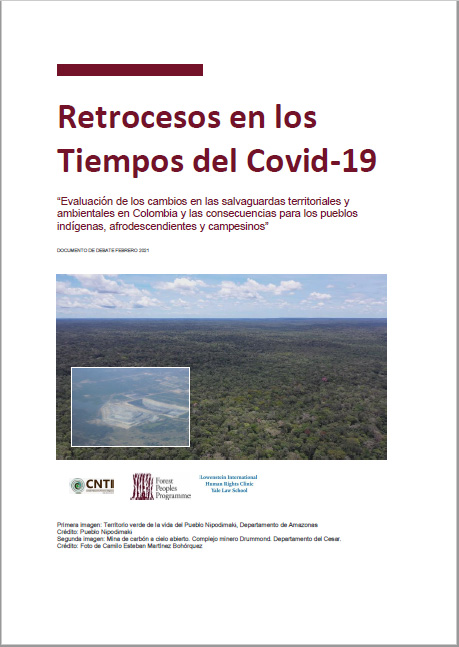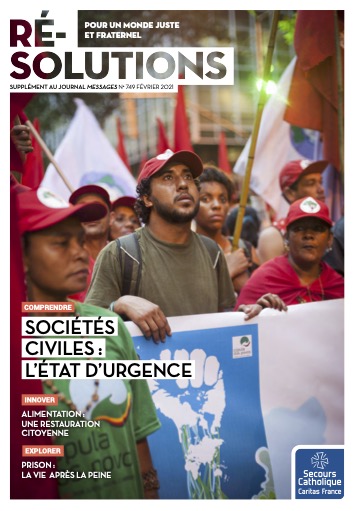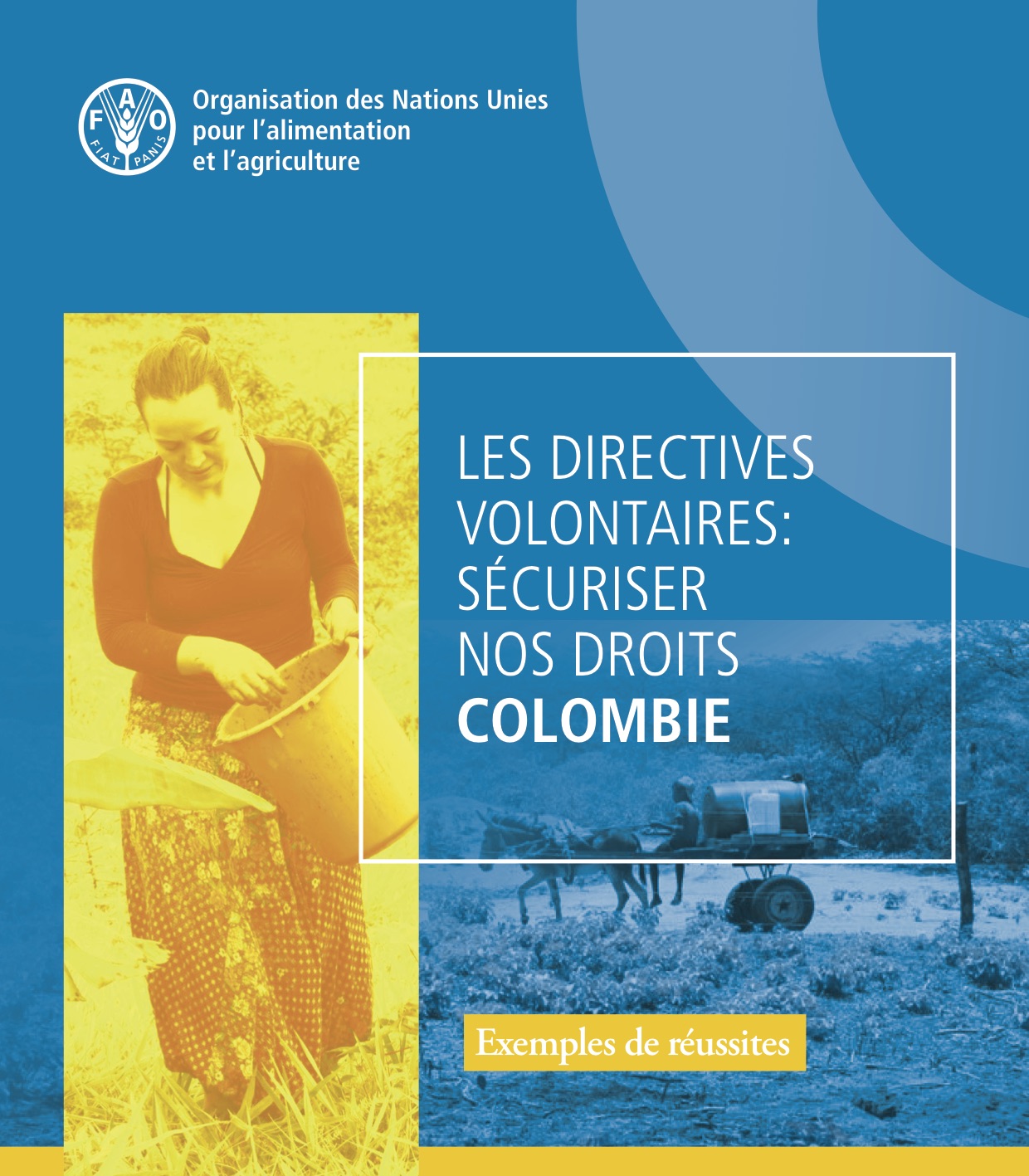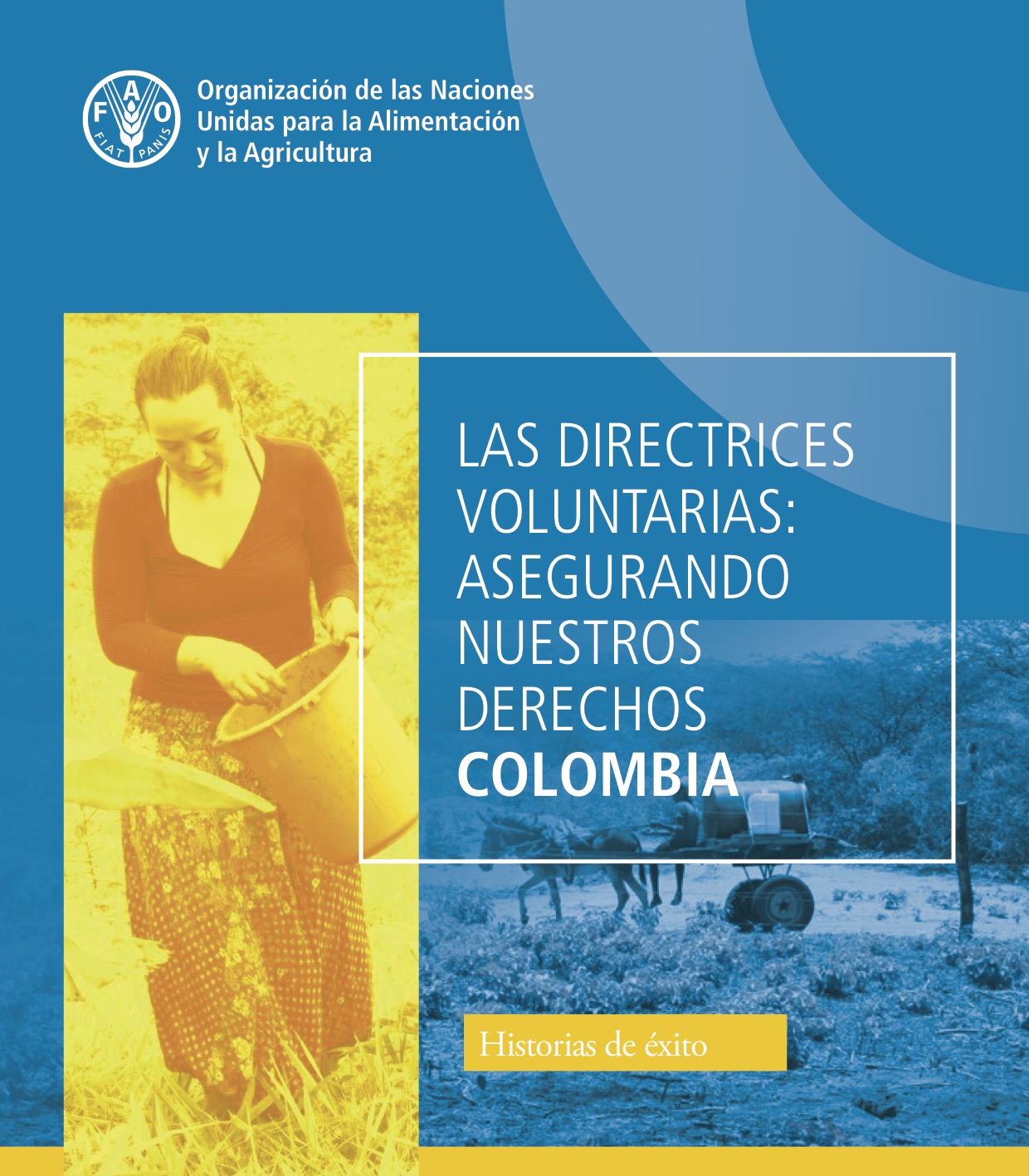Energy crop expansion can increase land demand and generate displacement of food crops, which impacts greenhouse gas (GHG) emissions mainly through land-use change (LUC). Increased agricultural productivity could compensate for this. Our study aims to evaluate the regional combined GHG emissions…
In this onepager, you can find details on the LAND-at-scale project in Colombia. This project is implemented by Kadaster International, ICCO and Tropenbos, and financed by the Ministry of Foreign Affairs via the Netherlands Enterprise Agency.
The webinar Rolling back social and environmental safeguards in the name of COVID-19, organized by Forest Peoples Programme, the Tenure Facility, Middlesex University, the Lowenstein International Human Rights Clinic and the Land Portal Foundation, took place on Thursday, February 18, 2021.…
Cattle grazing and fire are common types of management on natural ecosystems, generating several threats to the conservation of native vegetation (e.g., changes in species richness, cover, and abundance, mainly of bovine-palatable species). In this work, we analysed the response of the structure…
Today, the design and remodeling of urban environments is being sought in order to achieve green, healthy, and sustainable cities. The effect of air pollution in cities due to vehicle combustion gases is an important part of the problem. Due to the indirect effect caused by the Covid-19 pandemic…
Las medidas de confinamiento adoptadas por el gobierno colombiano para contener la propagación del Covid-19, se han traducido en un detrimento de libertades y derechos fundamentales de las personas: restricciones de movilidad, toques de queda sin garantía de renta básica, cierre de mercados,…
Plus les mois avancent et plus l’on constate une détérioration des libertés individuelles et collectives dans nos pays. » C’est le cri d’alarme lancé par une cinquantaine de partenaires internationaux à travers une enquête réalisée l’été dernier par les membres de la direction…
There is little information concerning how people in the Global South perceive the benefits and costs associated with urban green areas. There is even less information on how governance influences the way people value these highly complex socio-ecological systems. We used semi-structured surveys…
Cette publication de la série « Success Stories » présente les bonnes pratiques en matière foncière en Colombie à travers l'application des VGGT par certains projets de la FAO entre 2014 et 2021, notamment dans le cadre de l'amélioration de la gouvernance et de la réduction des…
Esta publicación de la serie “Historias de éxito (Success Stories)” presenta las buenas prácticas en materia de tenencia de la tierra realizadas en Colombia a través de la aplicación de las VGGT por algunos proyectos de la FAO entre el 2014 y el 2021, especialmente en el contexto de mejora de la…
This Policy Brief provides scientifically sound guidance for decision makers to help integrate SLUS strategies into policy instruments, in order to promote synergies and address trade-offs between multiple objectives related to climate change mitigation, sustainable agriculture and peacebuilding…
Social cohesion plays a key role in processes of peacebuilding and sustainable development. Fostering social cohesion might present a potential to enhance the connection of natural resource management and peacebuilding and better functioning of sustainable land use systems. This contribution…








